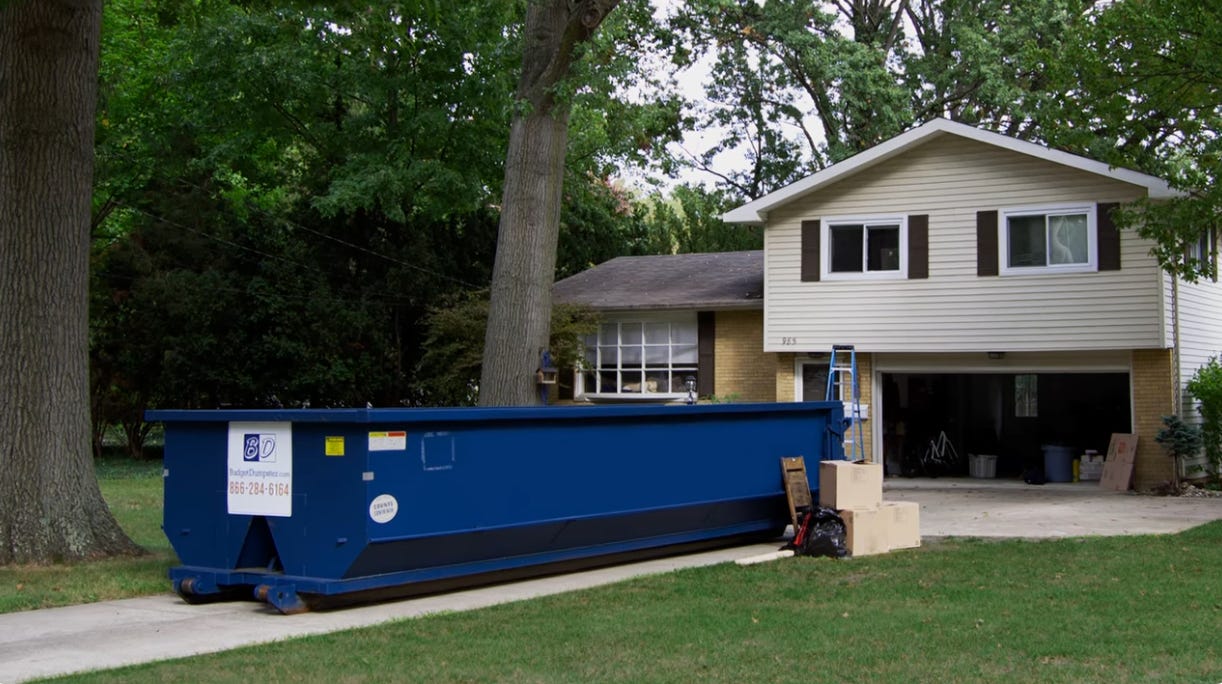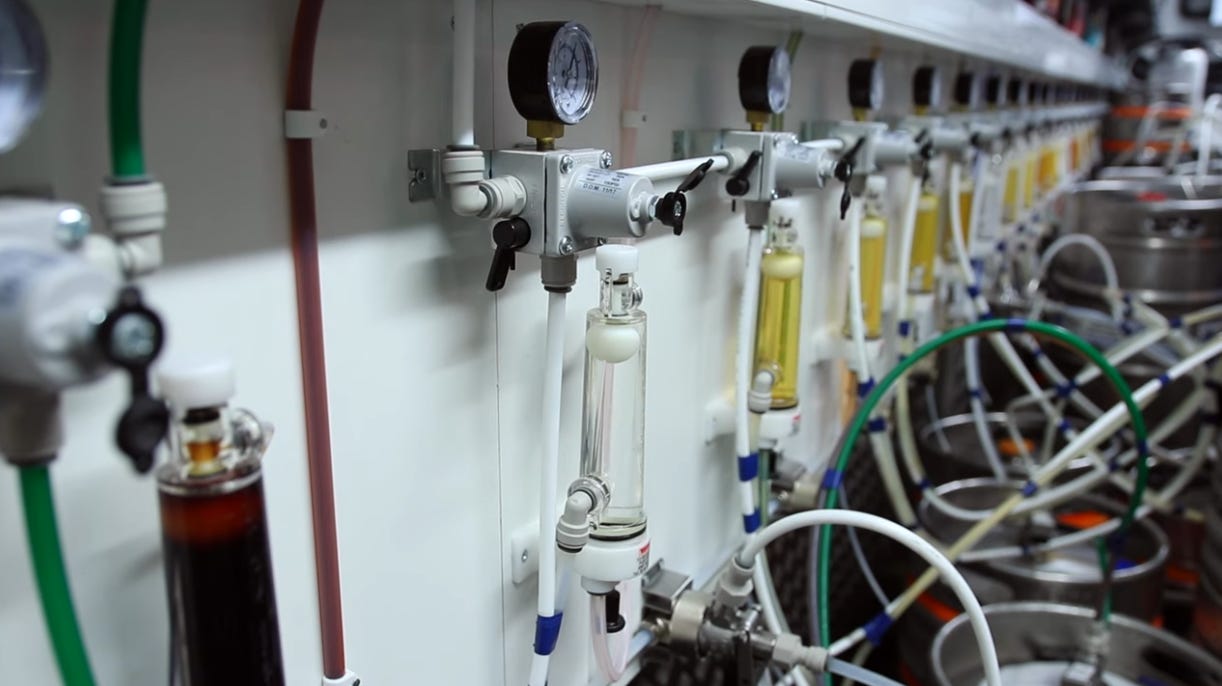Not sexy not trendy just 15 ideas that actually work
What comes to mind when I say “unsexy business ideas”?
Hold that thought, it’s probably not what you’re thinking.
Lately, there’s been a wave of people claiming to make serious money with AI tools or SaaS products.
Some even brag about pulling in millions a year, and it leaves you wondering, What the hell am I doing wrong?
Sure, there’s money to be made with AI and all those shiny SaaS apps that get hyped like a Dr. Dre beat.
But if you look closely, a lot of these stories are just clever marketing plays to get you to buy a course or join some paid membership group.
Scroll through YouTube, and you’ll find tons of videos showing off success stories people claiming they’ve cracked the code with SaaS, AI, or even by using platforms like LinkedIn, X (formerly Twitter), or YouTube. It’s not just about software; it’s everything under the sun in this wild digital economy.
I'm not against the business models everyone keeps praising these days, but is it really something every Tom, Dick, and Harry can do?
If it were that easy, the whole world would be rich by now.
Last week, I attended a conference for entrepreneurs, and it gave me a fresh perspective.
Making money isn't just limited to AI or SaaS. There are plenty of other opportunities in what people often call "unsexy" or "boring" businesses.
These are the kinds of businesses that don’t make headlines, but quietly generate serious income, sometimes even six figures.
I was curious, so I spoke with a number of entrepreneurs at the event. What I learned is that these “boring” industries can absolutely be profitable.
And by six figures, I don’t mean overnight success. It takes effort, smart scaling, and time. But the potential is there.
So today, I want to share a few of these so-called boring business ideas that you can explore, either on your own or with a team.
What is an unsexy business idea? 💸
An unsexy business idea is one that doesn't sound exciting at first glance. You probably wouldn’t brag about it at a dinner party. But these businesses are practical, often overlooked, and solve real-world problems. They’re not about cutting-edge tech or trending apps, they’re usually found in trades, services, logistics, or infrastructure. And they work.
Just to clarify: I’m only going to talk about the ideas I personally came across during the conference I attended.
There are plenty more out there.
Codie Sanchez, founder of Contrarian Thinking, has a whole list of 130 boring businesses she finds fascinating. You can also find similar discussions on Reddit, Quora, and across social media.
1. Security camera installations
This is a no-nonsense business that’s growing fast. Homes, schools, offices, everyone wants to feel safer, and most people don’t know how to install a proper camera system themselves. If you’re good at what you do and answer your phone (seriously), you’ll stay busy.
Startup costs: Around $4,000–$10,000. You’ll need tools, basic inventory, a van or truck, and possibly some certification or licensing depending on where you live.
Revenue potential: $90,000–$200,000/year, with potential to scale well beyond that if you hire others or get recurring clients (like property managers or schools). Referral business can be huge in this space if you’re reliable.
2. Mobile pet care business
This includes pet walking, drop-ins, mobile grooming, overnight sitting, and in-home boarding.
It’s flexible, in high demand, and can be very personal, which means you can charge more if you’re reliable and trusted.
You need good animal instincts, people skills, and some insurance.
Startup costs: $1,000–$10,000 depending on whether you offer grooming (which needs gear and possibly a van) or stick to walking/sitting.
Revenue potential: $40,000–$85,000/year solo. Grooming or boarding pushes it to $100K+ if you work full time or hire help.
3. Specialized pet sitting (high-need animals)
This is a niche within pet care, animals that need meds, injections, or special handling.
Vet techs or anyone with animal medical experience are perfect for this. It’s not glamorous, but it’s steady, trusted work.
This kind of service spreads fast through word of mouth. If you’re good, you’ll end up turning down work.
Startup costs: $1,000–$3,000 for marketing, insurance, and supplies.
Revenue potential: $50,000–$100,000+/year. You can charge premium rates (often $30–$75 per visit) because it’s specialized care.
4. Selling high-visibility seals and O-rings to oil & gas
Yes, we’re talking about brightly colored rubber rings that sounds ridiculous, but it solves a very expensive problem in the oilfield: downtime from human error. Bright seals are easier to spot, which helps avoid six-figure mistakes.
This is a perfect example of a boring product that becomes a must-have once it proves itself.
Startup costs: $20,000–$50,000+ depending on inventory, storage, and how you distribute (direct or through vendors). You don’t need to manufacture, just source and sell.
Revenue potential: Easily hits $500K–$1M+ annually if you land the right clients. Margins are thin, so volume is key, but the industry is big, and repeat purchases are constant.
5. Metal recycling
If you can get the equipment and land, scrapping and recycling metal is a solid play. The big money comes once you can process and compact metal on-site.
Startup cost: $150K–$500K (land, equipment like car crushers)
Average revenue: Can range from $500K to $2M+ per year depending on scale
6. Dumpster rentals
Buy a few dump trailers and start renting them out. You’d be surprised how many people need short-term waste removal for renovations, cleanouts, or construction.
Startup cost: ~$10K–$15K per trailer
Average revenue: $150K–$300K+ annually with a small fleet (5–6 trailers)
7. Pest control
One of those slow burn businesses that becomes a cash cow with time. Start small, then grow a team. Margins are strong and customers tend to stay loyal if you’re reliable.
Startup cost: ~$10K–$50K (licenses, truck, equipment)
Average revenue: $500K in year 1–2; $4M+ by year 3–5 is very possible
Potential profit: $600K+ annually if you scale well
8. Trash removal services
People will pay you to take their junk away, and this business does well in good and bad economies.
Startup cost: $10K–$50K (truck, dumping fees, insurance)
Average revenue: $200K–$500K+ depending on the number of jobs and areas served
9. Dog poop pickup
Yes, really.
Pet waste removal is a growing niche.
Busy or older pet owners love it. If you’re consistent, you’ll keep clients long-term.
Startup cost: Under $5K (bucket, bags, route management software)
Average revenue: $100K–$150K/year with just one person working
10. Commercial kitchen rental
This is a hidden gem. Food startups, caterers, and bakers all need licensed commercial kitchen space. If you own it and rent by the hour or shift, it prints money.
Startup cost: $100K–$250K (if buying an existing kitchen or building one)
Average revenue: $500K–$1.5M/year
Net profit: Easily 7 figures if fully booked and run efficiently
11. Hazmat waste removal
This includes nasty but necessary stuff like cleaning pigeon droppings, asbestos, mold, or chemical spills. High barrier to entry, but also high reward.
Startup cost: $50K–$150K (certifications, equipment, insurance)
Average revenue: $180K–$500K+ depending on contracts
12. Beer line cleaning & draft system installations
Bars and restaurants need their beer lines cleaned regularly. Do it properly, and they’ll keep you on retainer. Add draft system installs and part supply, and it becomes a full-service business.
Startup cost: ~$5K–$20K (cleaning pump, tools, parts inventory)
Average revenue: $400K–$600K+ with just a few employees
13. Roofing
A high-ticket service that people can’t put off forever. You can subcontract out most of the labor, which makes this easier to scale than people think.
Startup cost: $15K–$50K (licenses, truck, tools, insurance)
Average revenue: $500K–$5M/year
Profit potential: Mid-6 to 7 figures once established
14. Concrete supply
Not a small startup, but if you can break in, concrete supply for construction is a money-maker. Margins are solid, and demand is steady in any growing area.
Startup cost: $500K–$1M+ (trucks, batching equipment, yard)
Average revenue: $2M–$10M+ per year
15. Laundromat business
This includes self-serve washers and dryers, optional drop-off laundry service, vending machines, and sometimes extras like Wi-Fi, coffee, or kids’ play areas.
It’s steady, always needed, and mostly hands-off if you keep the place clean and machines running. Once set up, it doesn’t take much day-to-day work beyond maintenance and collecting payments.
You need a good location, reliable machines, and a basic understanding of business and equipment upkeep.
Startup costs: $100,000–$300,000 if you buy an existing one. Building from scratch can run $200K–$500K depending on location and equipment.
Revenue potential: $40,000–$100,000+/year for a solo owner.
Brandon Schlichter made over $130K in 150 days from one laundromat, but that's on the high end. Most average $1,000–$5,000/month profit depending on size, pricing, and traffic.
Summary
I know a lot of business ideas can seem unexciting, but what I shared is based on what I picked up at the entrepreneurship conference I attended last week.
From what I saw and heard, if these types of businesses are done right, they really can bring in six figures.
Try one and see how far you can go with it, but don’t get caught up in the hype of trying everything at once.
That’s a fast track to burnout and frustration if things don’t work out right away.
Final thoughts
The point here isn’t to chase the next shiny tech trend or wait around for some secret AI formula to make you rich.
It’s to realize that there’s real money in the businesses most people overlook.
These so-called “unsexy” ideas may not get you thousands of likes on social media, but they can build something solid, especially if you’re reliable, put in the work, and focus on solving real problems.
So, what do you think? Are any of these business ideas something you'd actually try?
Did I miss one you think belongs on the list?
Drop a comment and let me know, I'm curious to hear your take.





















